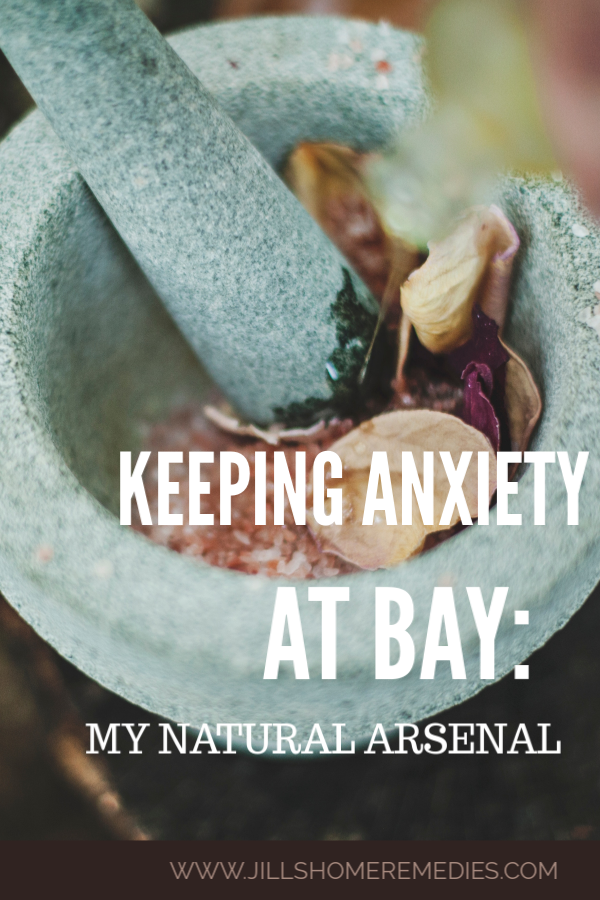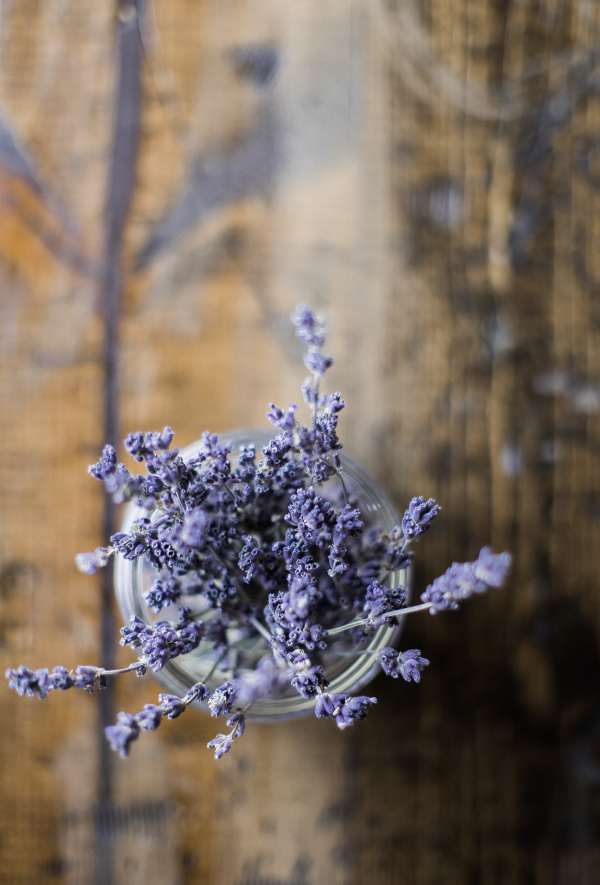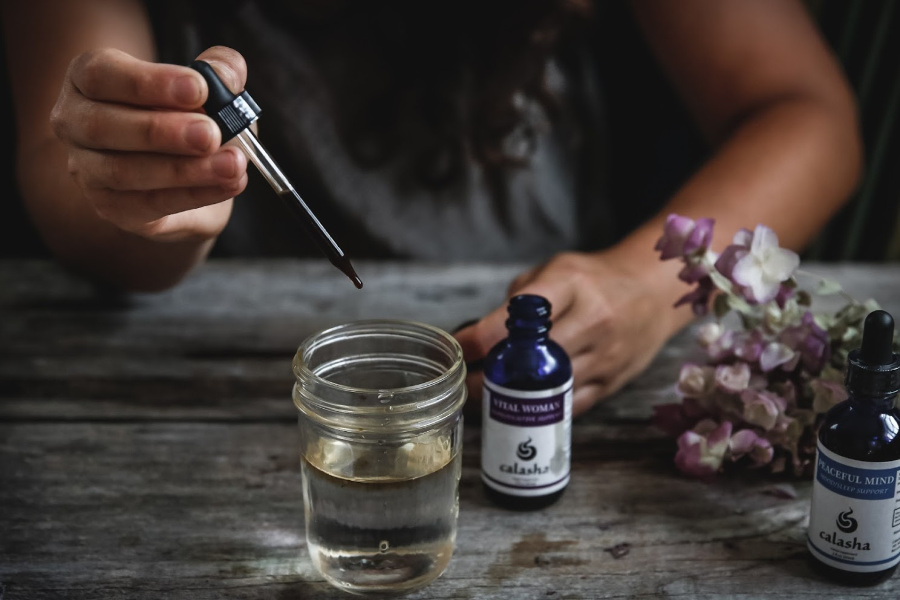I first experienced anxiety, panic attacks, and heart palpitations in my late teens. I guess you could say that since then it has come in spells depending on how busy life is and whether or not I am supporting myself with the nutrition it needs to keep up with life’s happenings.
We all have genetic weaknesses (some have heart diseases that runs in the family, some cancer, some diabetes, etc.) and I happen to have these kind of symptoms that run in my family. I have family members on medication for heart palpitations, others take nerve pills to calm panic attacks and anxiety. I prefer not to take medication if I can help it because my philosophy is that my body is not lacking in medication, it’s lacking in whatever it needs to function properly. Taking medication for an underlying issue like this is just putting a band-aid on and the unhealthy problem is still there! When our bodies go crazy like this, it is letting us know that things are unbalanced and needs some serious nourishment. It’s important to research and do all we can naturally to support our bodies in addressing these genetic weaknesses.
I have learned how to help myself through these episodes by reading and researching a lot, and putting puzzle pieces together. It is my hope that if you suffer from any symptoms of anxiety or panic attacks, you can find natural help through some or all of the things mentioned here!
What Causes Anxiety?
In short, the thing that causes anxiety, panic attacks, heart palpitations, and similar problems is that we put too many demands on our adrenal glands and our body produces symptoms to let us know that something is wrong and needs immediate attention. These causes can come from physical, mental, or emotional demands. Chronic stress, medications, and poor diet are contributors as well. When we face busy or stressful times in life and our body is lacking in essential vitamins or minerals, or our intestinal health is not healthy, our body can go haywire. We use up nutrients and are not replenishing them as needed.
Blood sugar imbalance can also be an underlying cause of anxiety. My DC (Doctor of Chiropractic) discovered that unbalanced sugars were a main cause of my anxiety issues. I’ll discuss below what he gave me to get my sugars back on track.
When I first had anxiety and panic attacks, my symptoms included feeling like I was flying when I drove a vehicle or sat in a room with high ceilings. I was extremely fatigued and had a hard time doing simple tasks such as washing the dishes and cleaning the house. I had no idea what was wrong with me, and neither did my regular doctors. You can also feel like you are walking sideways or downhill when walking on a flat surface. Heart palpitations are pretty common, as well as insomnia, excessive worry, and restlessness. Supporting the adrenal glands is important when experiencing anxiety.
My Natural Arsenal For Keeping Anxiety at Bay
- Vitamin B-Complex – B vitamins support the adrenal glands which reduces stress and anxiety. Years ago I began experiencing heart palpitations and started taking a B-complex supplement, and my palpitations stopped overnight! My body was obviously lacking in these vitamins, but this is not always the only answer. Sometimes I need to take several nourishing things to get back on track. If you have any kind of nerve problems, a good B-Complex is important.
- Adrenal Support – As I mentioned above, the symptoms of anxiety and panic attacks are a sign that the adrenal glands need help. A great way to do this is with herbs that support the adrenals such as:
I like to keep at least one of these herbs on hand (typically the ashwagandha) to add to tea mixes for nourishment. You can also buy a tincture or capsule form.
- Nerve Tea – If I am having a stressful day or am starting to feel anxious, I love drinking what I call Nerve Tea. I fix a quart jar of this and sip on it throughout the day, and it calms my nerves! Here’s what I do: *Combine equal parts of dried rose petals, chamomile, lavender flowers, and oatstraw in a container for storage (I like to store herbs in jars). Sometimes I add chrysanthemum flowers and I also like to add an adaptogenic herb like ashwagandha to support the adrenals. The adaptogenic herbs should be added in half the amount as the others. So, for instance, if I added 1/4 cup each of the rose petals, chamomile, lavender flowers, oatstraw, and chrysanthemum flowers, I would only put 1/8 cup of one of the adaptogenic herbs in the jar. Mix the herbs in the jar well and add 2 teaspoons of the mix to a cup of boiling water. I almost always make a quart jar, so you would obviously multiply the amount to 8 tsp. of the mix for 4 cups of water if you want to make that much. I find that 3-4 cups in a day is necessary if I’m having any of my symptoms of being too stressed. Remove the pan from heat and cover with a lid. Steep for 30 minutes. Strain the herbs and sip away!
- Magnesium – Stress depletes us of vital nutrients like magnesium. Magnesium is highly associated with our stress levels. [1] [2] Supplementing with magnesium is essential when you experience symptoms of stress. I try to take it every night before bed. It nourishes and helps calm the body for bed. You’ll most likely find yourself sleeping better at night! My current favorite is Natural Calm. They have a few flavored options with stevia. I’m currently taking the raspberry lemon flavor. You check out the different flavors here!
- Dr. Bach’s Rescue Remedy – this is a flower remedy specifically targeted for emotions rather than for the physical body. It helps stress, panic attacks, emotional trauma, and shock. You just place a few drops under the tongue as needed.
- Kombucha – Kombucha is a fermented drink that is so good for the adrenals, is full of b vitamins, and helps lower cortisol levels. It is also very, very good for the gut health. All of these things are great at reducing stress. If I know I’m going to have a very busy week and possibly not enough sleep, I make sure I’m drinking a bottle of kombucha every day. It supports my adrenals and nervous system to help me stay on my feet and have the energy I need. The difference is like night and day! You can make your own kombucha (see www.culturedfoodlife.com for instructions), or you can buy kombucha at some stores like Wal-Mart. Not all bought kombucha is as good as homemade (as far as being as nutritious), but GT’s Kombucha is one brand that IS as good for you as drinking homemade. It saves a ton of money to make your own, but buying is more convenient, so some prefer that.
- VegeCleanse Plus for balancing blood sugars. I used this 14 day Detox Program and found myself feeling much better. I typically do this detox program once or twice a year when symptoms are bad enough.
- Diet – processed foods and sugar contributes to stress and adrenal problems. Eat as much food to the way it was originally created as possible!
- Sleep – Having enough sleep is essential when experiencing anxiety. The difference in getting 6 hours of sleep and getting 8 hours is huge! I’ve often found myself with headaches and a general feeling of heaviness and stress in my head. Making sure I get to bed by 9 or 9:30 when I feel this way makes me feel like a new person.
You may be wondering which of these you should take and when? I keep all of it on hand the best I can. But here’s how I personally use these natural remedies for keeping anxiety at bay, as well as heart palpitations and panic attacks.
Every day:
- B-complex vitamin
- Multivitamin (sometimes in a supplement form, and sometimes as an herbal tea or DIY tincture).
- 16 oz. of kombucha (if you’ve never had kombucha, start out drinking 2-4 oz. a day and work your way up)
- Magnesium such as Natural Calm
- An adrenal herb
When I begin having heart palpitations, anxiety, and/or panic attacks or feel overly stressed, I add these other things to my daily routine until my body balances and symptoms subside.
When needed:
- VegeCleanse Plus 14 day detox program (once or twice a year)
- Dr Bach Rescue Remedy
- Nerve Tea
- Make sure I’m getting extra sleep and go on a stricter, whole foods diet.
If you are dealing with anxiety, heart palpitations, extreme stress, depression, panic attacks, etc., let me reassure you that there IS hope and there is a way to heal yourself. I felt so hopeless all those years ago when I didn’t know what was wrong with me or how to get better. It can be a long journey to healing, but it’s worth it! Don’t be discouraged in the journey. It often takes years of stress, maybe taking medication, and/or poor diet to cause our body to suffer these health problems. It can also take a while to correct the damage that has been done. Patience and persistence is always key!
Resources:
1. Cuciureanu, M. D. (1970, January 01). Magnesium and stress. Retrieved from https://www.ncbi.nlm.nih.gov/books/NBK507250/
2. Boyle, N. B., Lawton, C., & Dye, L. (2017, April 26). The Effects of Magnesium Supplementation on Subjective Anxiety and Stress-A Systematic Review. Retrieved June 12, 2019, from https://www.ncbi.nlm.nih.gov/pmc/articles/PMC5452159/
3. Top 5 Ways Kombucha Relieves Stress. (n.d.). Retrieved June 12, 2019, from https://www.storey.com/article/top-5-ways-kombucha-relieves-stress/



great article. Lavander is also great for people who have trouble sleeping
Great ideas. I haven’t had problems with anxiety until lately. I think it’s mostly because of Seasonal Affective Disorder, lots of extra stress, and lack of sleep. Thank you for these natural ideas! My doctor suggested drugs, but I didn’t want to do that.
Anni, have you ever tried vitamin D drops for Seasonal Affective Disorder? Here’s a good option here!